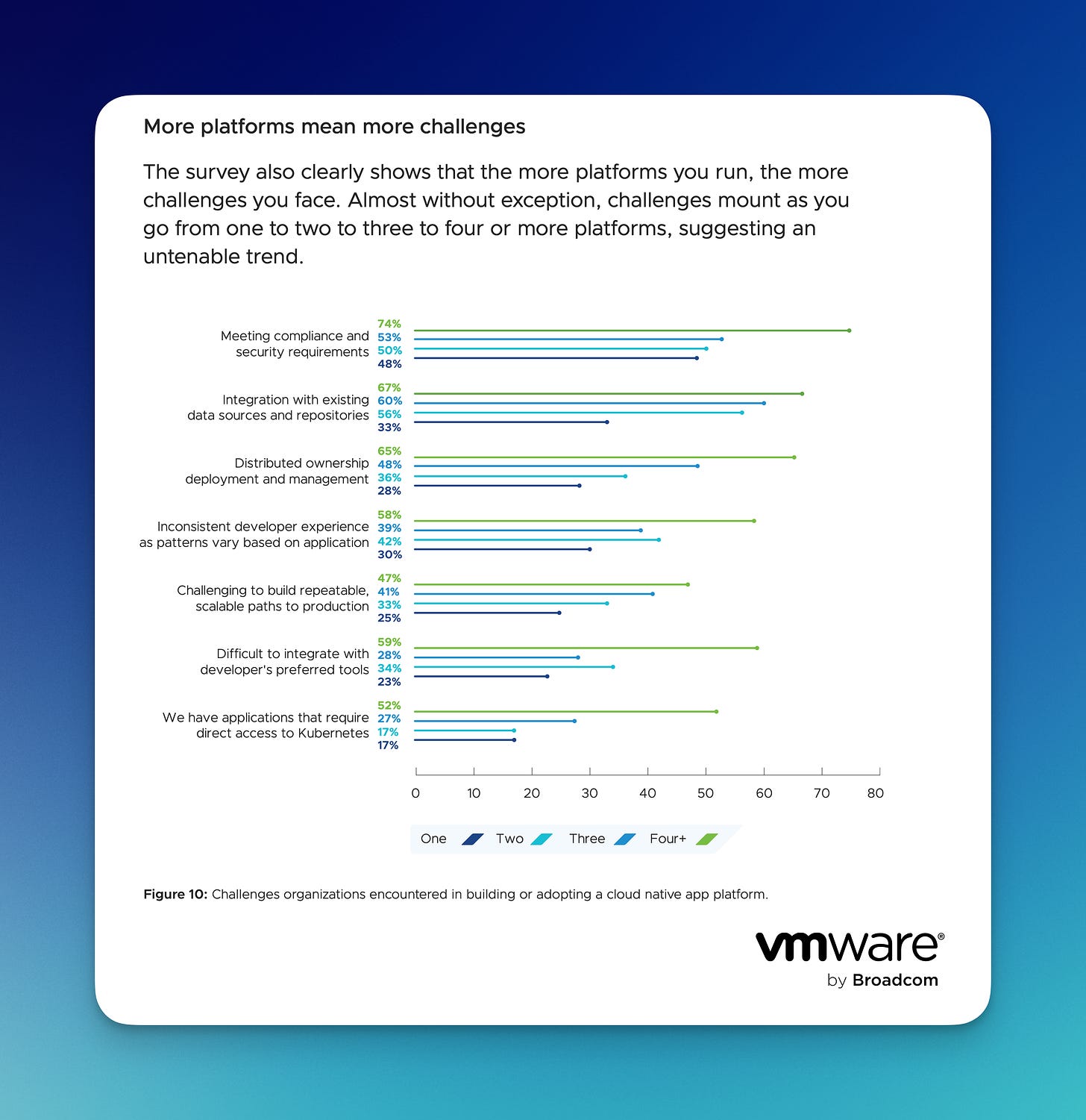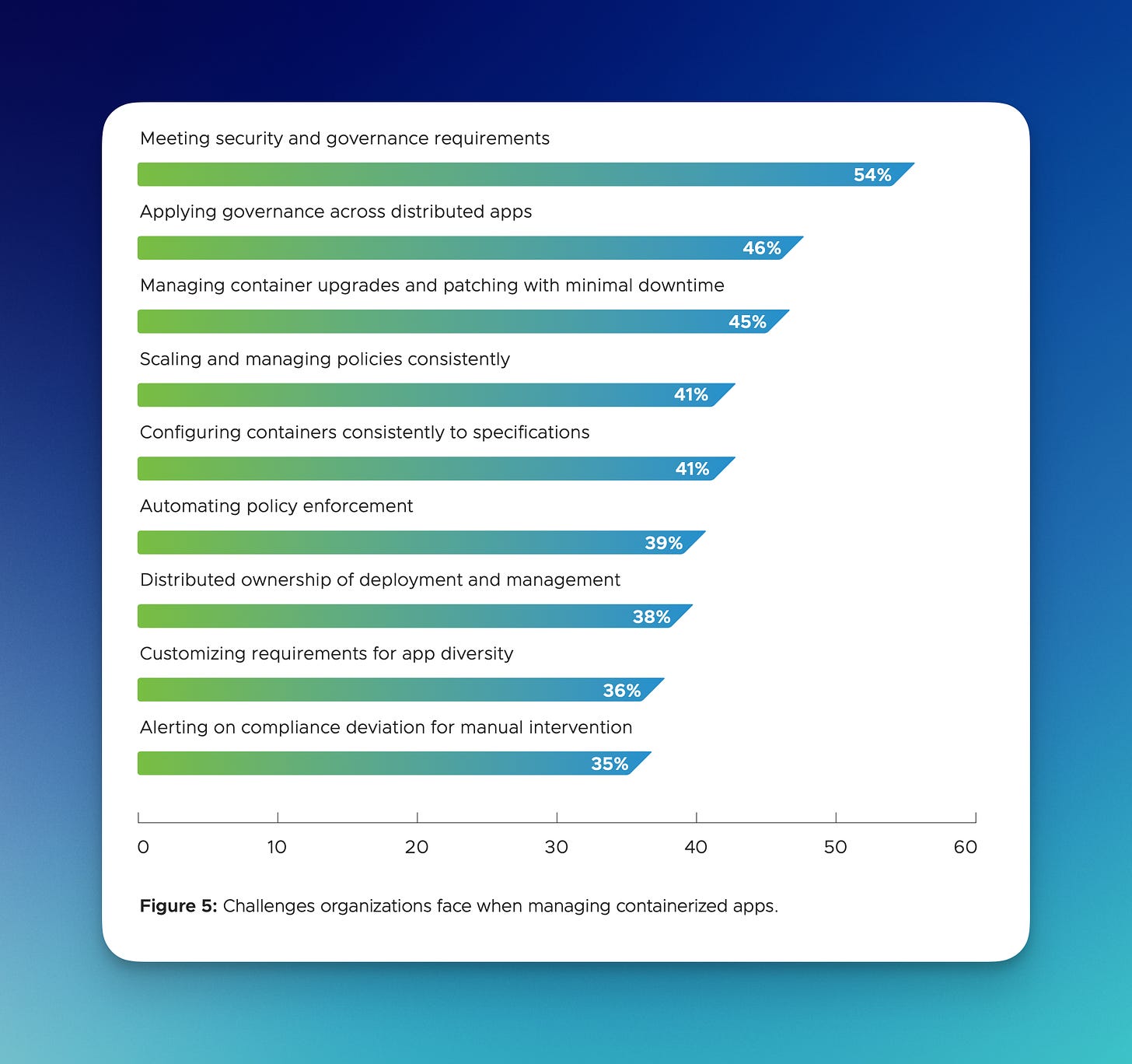Have you tried having less?
Standardized. Centralized. Consistent. Those words I use over and over when talking about platforms. In large organizations, you’ve got hundreds, even thousands, of applications. There are likely tens of “platforms”: the stacks of runtime and middleware goo that all those apps run on. Maybe even hundreds if the company is large enough, old enough, and has gone through enough acquisitions (most all global banks).
The more of those platforms your have, the more time you’ll spend managing them, governing them, securing them, and figuring out how to trouble-shoot problems. This is just, like, intuitively the case: instead of knowing how one thing works, you need to know how five (ten, 20, etc.) things work.
Here’s a chart on all this from our recent State of Cloud Native Platforms survey:
This used to be called the “State of Kubernetes Survey,” but it’s been slightly generalized with the rename. Still, I’d mostly think of these finds as Kubernetes-centric.
These are large enterprise challenges, and you see that in some other questions.
First, “management” is much more concerned with governance at scale and strategic risk management. They’re worried about more than just one app, or just one platform, but about the long-term health of the organization. You see that they care more about these types of concerns when compared to individuals:
And, when you look at things these larger organizations worry about, it’s back to governance, control, and consistency:
There’s all sorts of reasons that large organizations run a lot of different platforms. But, clearly, they work towards running less.
There’s more fun findings in the survey, check it out for free! I’ll probably pull some more charts out of in another newsletter episode.
Also, on that “consistency” thing, here’s more from Whitney and Oren about the benefits of having less platforms:
Conferences, Events, etc.
Talks I’m giving, places I’ll be, and other plans.
DevOpsDays Amsterdam, June 20th, speaking. SpringOne/VMware Explore US, August 26–29, 2024. SREday London 2024, September 19th to 20th. VMware Explore Barcelona, Nov 4th to 7th.
Discounts. SREDay London (Sep 19th to 20th) when you 20% off with the code SRE20DAY. And, if you register for SpringOne/VMware Explore before June 11th, you’ll get $400 off.
Logoff
What does it mean when you’ve been carrying the same overdue things in your to do list manager (OmniFocus) for months? It doesn’t mean they’re not actually due. I think it might mean that they’re thing you wish you would do, but don’t need to do: false urgency? They’re things you don’t want to lose track of…that could be due…or not? Managing these items is challenging.


